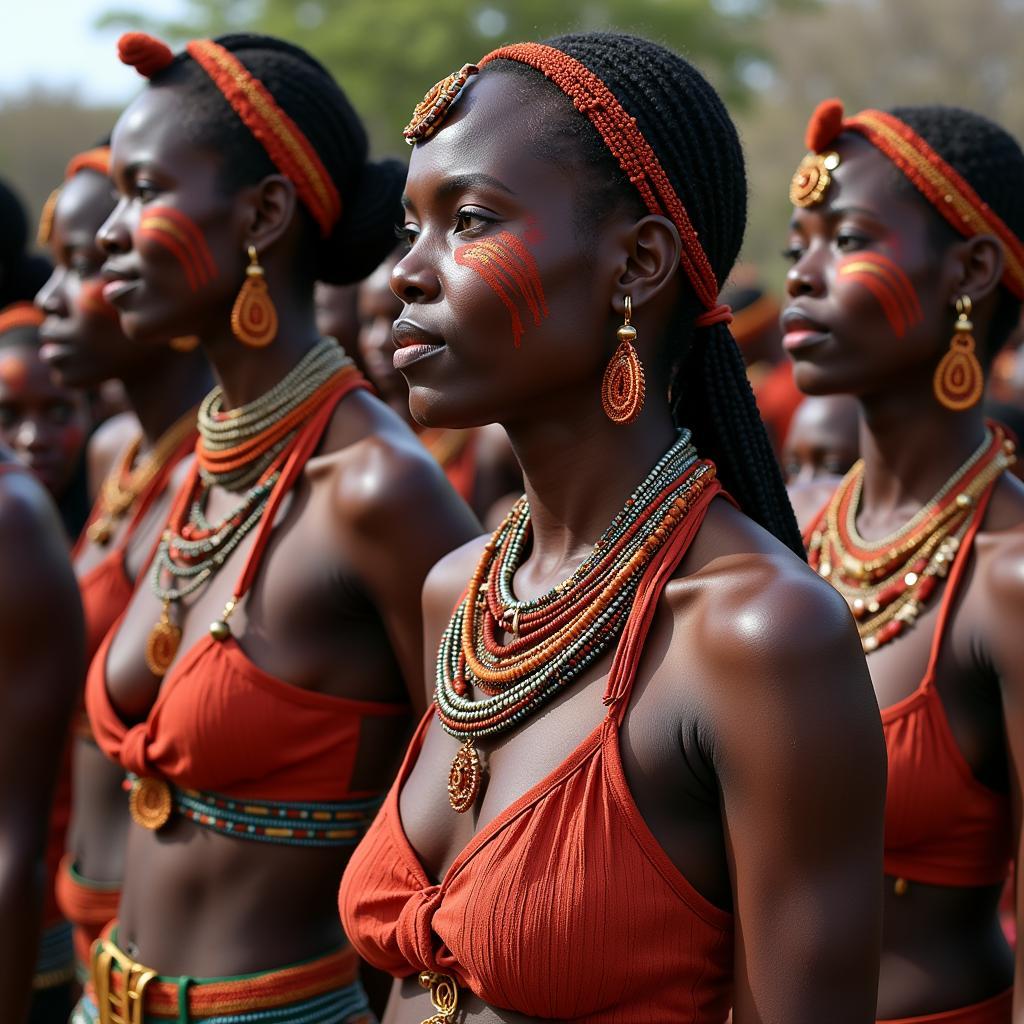Understanding African Customary Law in South Africa: A Textbook Guide
African Customary Law In South Africa Textbook resources are essential for grasping the complex interplay between traditional practices and modern legal frameworks. This area of law governs a significant portion of the population and understanding its nuances is vital for anyone interacting with the South African legal system. This article delves into the key aspects of African customary law, exploring its history, significance, and contemporary relevance.
A Historical Overview of African Customary Law
African customary law isn’t a static entity; it’s a living, evolving system with roots deep in the traditions and customs of various indigenous communities. Pre-colonial Africa saw diverse legal systems operating within different ethnic groups, regulating social relations, land ownership, inheritance, and dispute resolution. These systems, passed down orally through generations, formed the bedrock of what we now know as African customary law. The arrival of colonialism significantly impacted these traditional systems, often marginalizing them in favor of Western legal principles. However, the post-apartheid Constitution of South Africa recognizes the validity of customary law, subject to constitutional principles.
The Recognition of Customary Law in Post-Apartheid South Africa
The recognition of African customary law in the Constitution was a landmark achievement, acknowledging the importance of cultural diversity and legal pluralism. This recognition, however, also brought forth the challenge of integrating customary law into the broader legal framework while ensuring its compatibility with constitutional rights. This process continues to evolve, with ongoing debates about the codification, application, and interpretation of customary law.
Key Principles of African Customary Law in South Africa
Several core principles underpin African customary law. Ubuntu, a philosophy emphasizing community and interconnectedness, plays a crucial role. Decisions are often made collectively, prioritizing the well-being of the community over individual interests. Emphasis is placed on restorative justice, seeking to repair harm rather than simply punishing offenders. Another key principle is the significance of lineage and kinship in determining rights and responsibilities. Land ownership, for instance, is often communal, with rights tied to ancestral lineage.
Ubuntu and its Influence on Legal Processes
Ubuntu, often translated as “I am because we are,” profoundly shapes the legal processes within customary law. It emphasizes reconciliation and restorative justice, focusing on resolving disputes through dialogue and consensus-building. This contrasts with the adversarial nature of Western legal systems.
African Customary Law in South Africa Textbook Resources: A Guide
Finding reliable resources for understanding African customary law is crucial. Several textbooks offer comprehensive overviews of this complex field. These resources often explore the historical development of customary law, its key principles, and its interaction with the broader South African legal system. They also delve into specific areas like family law, land law, and dispute resolution within a customary context. Choosing the right textbook depends on your specific needs and level of study.
Navigating the Complexities of Customary Law Texts
Navigating these texts requires a nuanced understanding of the cultural context and historical evolution of customary law. It’s important to remember that customary law is not monolithic, and variations exist between different ethnic groups. Textbooks should ideally reflect this diversity and provide insights into the specific practices of various communities.
Conclusion: Embracing the Complexity of African Customary Law in South Africa
Understanding African customary law in South Africa requires engaging with its rich history, core principles, and ongoing evolution. African customary law in South Africa textbook resources provide invaluable tools for navigating this complex field. By embracing this complexity, we can better appreciate the diverse legal landscape of South Africa and its commitment to recognizing and integrating customary law within the constitutional framework.
FAQ
- What is the role of traditional leaders in customary law?
- How does customary law address gender equality?
- What are the challenges in integrating customary law with common law?
- How does customary law relate to land ownership?
- What are the main sources of customary law?
- How does customary law impact family disputes?
- Where can I find reliable resources on customary law?
Common Scenarios and Questions:
-
Scenario: A dispute arises over land ownership within a community governed by customary law.
- Question: What are the traditional mechanisms for resolving such disputes?
-
Scenario: A couple wishes to marry according to customary rites.
- Question: What are the legal requirements for a valid customary marriage?
-
Scenario: A family wants to distribute inheritance according to customary practices.
- Question: How does customary law differ from common law regarding inheritance?
Further Reading and Related Topics:
- The Role of Traditional Courts in Dispute Resolution
- Customary Law and Human Rights
- The Future of Customary Law in South Africa
For assistance, contact us at Phone: +255768904061, Email: kaka.mag@gmail.com, or visit our office at Mbarali DC Mawindi, Kangaga, Tanzania. Our customer service team is available 24/7.



